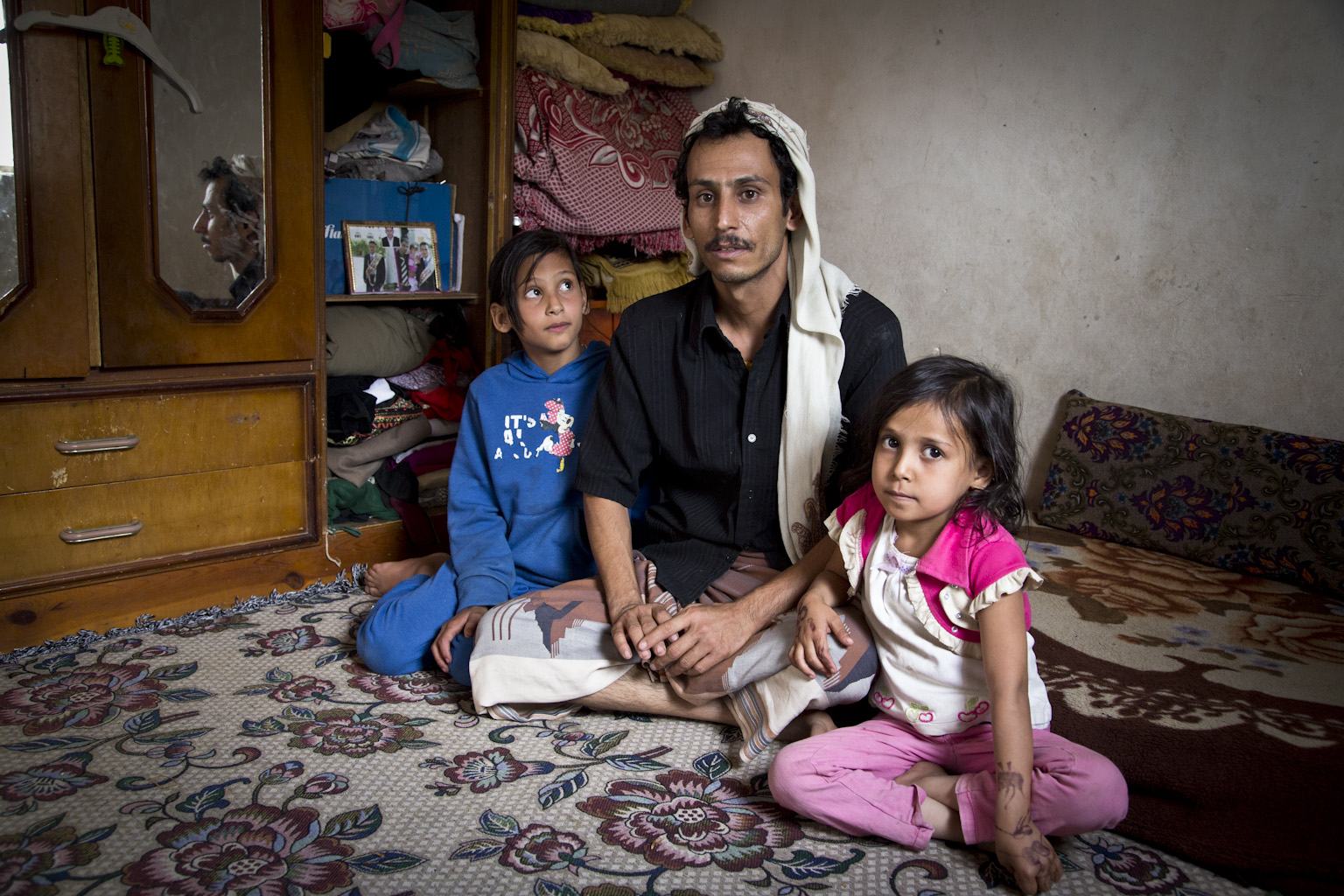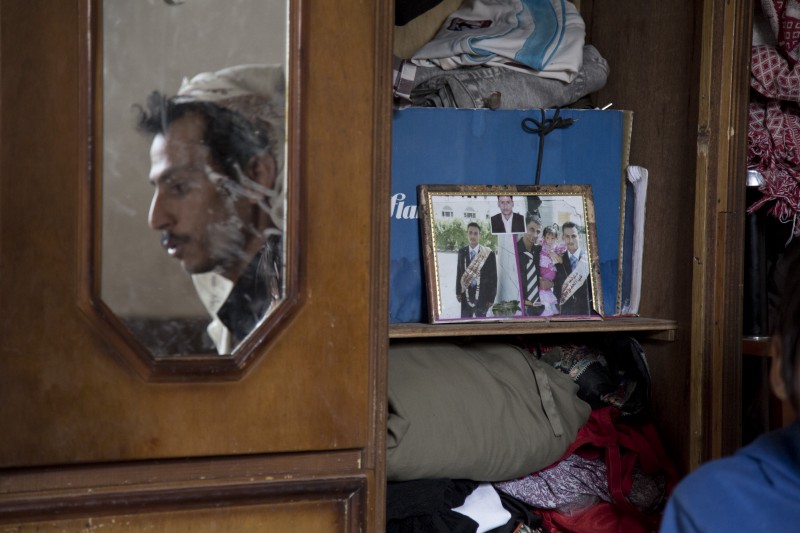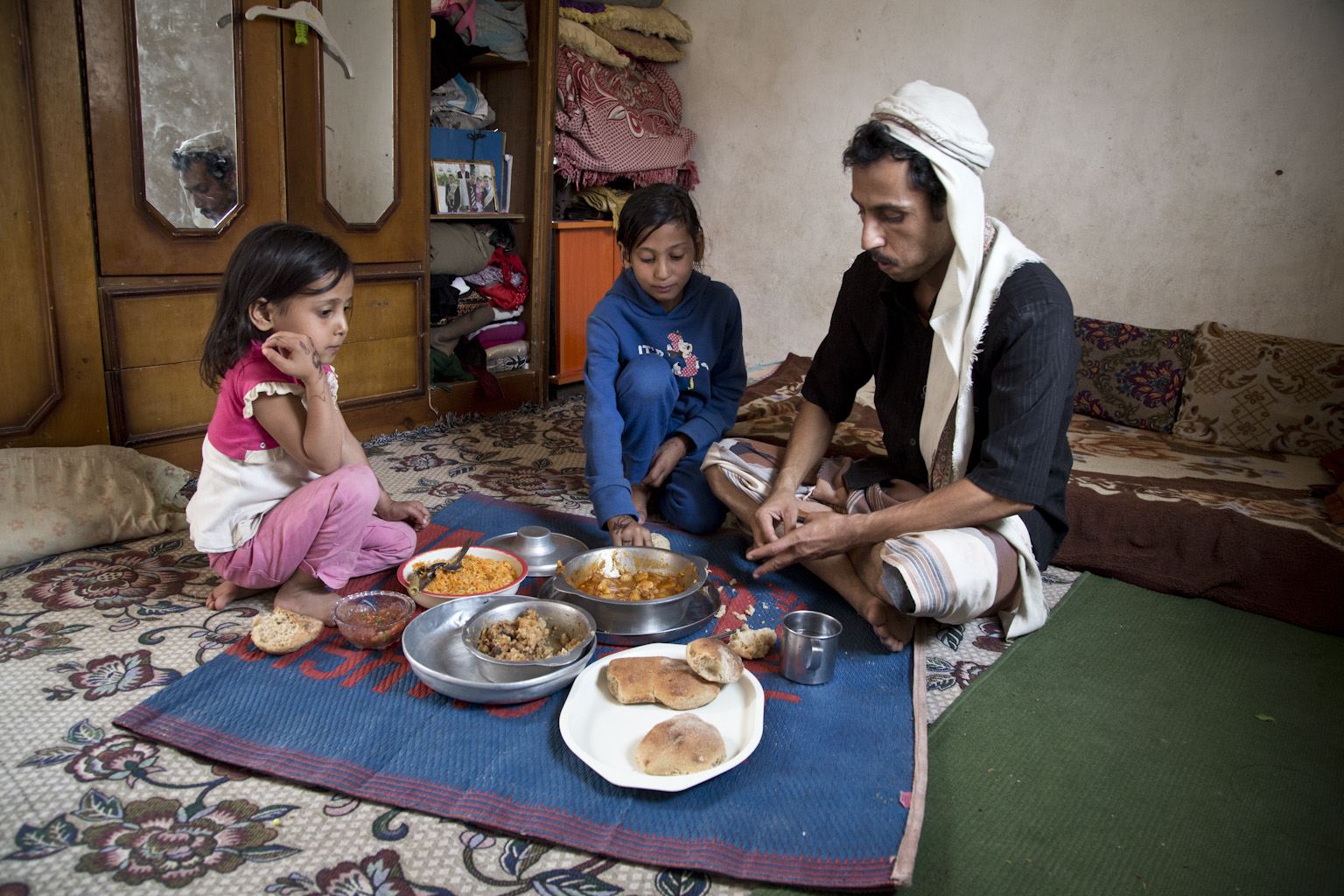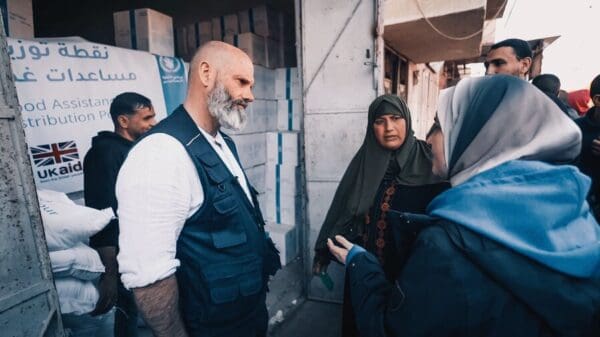Braving the Odds in Yemen

Walid Abdel Malek is young, polite and courteous. Despite some very tough years, he gracefully cruises through hardship keeping a brave face for the sake of his wife and three daughters. He cannot afford rent or a lot of food for his family, but his daughters look at him in awe.
“They know our situation, they rarely ask for anything,” he says. “If one of them wanted something and I said I had no money, they accept and just walk away.”

The law school graduate and his family were evicted from their rented houses twice after failing to pay the rent. Now, they live in a humble house in the Bani al-Harith district, north of Sana’a. The landlord has allowed them to stay there for free.
Originally from Taiz in central Yemen, Walid had been working in Sana’a before war broke out more than two years ago. Fearing for the life of his family, with conflict most intense in their area, he brought them all to Sana’a.

Walid’s graduation photo (right), propped up on a shelf in an old closet that his neighbors gave him. WFP/Marco Frattini
Living on the bare minimum
Walid, a government employee, has not been paid for the past ten months. Millions of public employees have not received their full salaries since September 2016. His family, like the millions of Yemenis who are dependent on these salaries, no longer have a sustainable source of income.
The family now lives on a small income he makes working as a taxi driver on a rented car, which he struggles to pay the rent for every month.
“We’ve been through some rough months, we had nothing in the house — no furniture, no food and no money,” he says.
“Sometimes I would stay late for work and when I come home and find [the children] sleeping, I say to myself ‘let them sleep until the morning.’ I never wake them up. If I wake them up they would say they wanted to eat dinner,” he says. “In the morning, the neighbors would usually bring us bread or something.”

The family depend almost entirely on the food assistance they receive from the United Nations World Food Programme (WFP). Since they are displaced, they receive a ration of wheat flour, pulses and oil, which keeps them stocked for a good part of the month.
“Today is the end of the month, we do not have much food left now but at least we do know that some help will be on the way soon,” he says, as his wife prepares lunch. When there is no money and their food assistance has run out, they depend on the generosity of their neighbors.
Giving without limits
As Walid’s family set up lunch , they are keen on inviting their guests to share the small, humble meal that is barely enough for their family of five.
“We have very little, but it’s enough to keep us going,” he says.

Walid and his two eldest daughters having a simple lunch of bread, rice and a traditional Yemeni vegetable dish, salta.
In Yemen, 17 million people do not know where their next meal is coming from. The food assistance the U.N. World Food Programme provides for seven million people each month is indispensable.
This piece was originally published on WFP’s Insight
Help Yemeni families and other communities across the globe fight famine now, when it's more important than ever.




